Bryce Dallas Howard on why she would support a disclaimer for 'The Help' and being an 'active ally'
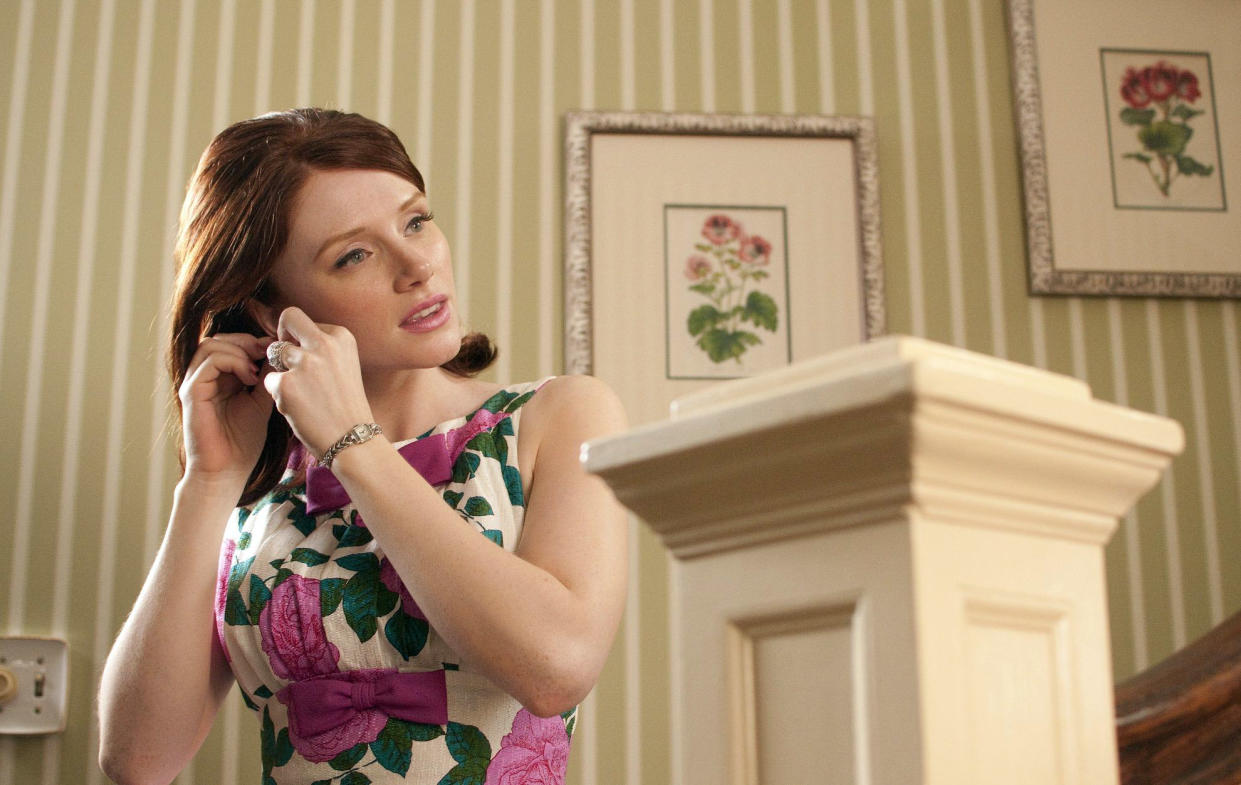
Great cinema can be a teaching tool during times of great conflict and change. But some movies just aren’t made for the moment. Case in point: In the midst of the Black Lives Matter protests inspired following the death of George Floyd, Netflix announced that Tate Taylor’s Oscar-nominated 2011, The Help — which tells the story of two Black maids (Viola Davis and Octavia Spencer) working for different white families in Civil Rights-era Mississippi — had become one the service’s most-streamed titles. That news didn’t go over well on social media or even the film’s stars.
On her Facebook page, Bryce Dallas Howard praised the “exquisite friendships” she made on the set while playing snooty socialite, Hilly Holbrook, but urged viewers to look elsewhere for stories that wrestle with the realities of racism from a Black perspective. “The Help is a fictional story told through the perspective of a white character and was created by predominantly white storytellers,” she wrote, going on to recommend titles like Ava DuVernay’s 13th and Spike Lee’s Malcolm X. “We can all go further.?”
Speaking with Yahoo Entertainment, the actress and director reiterated the need for audiences and artists alike to respond to evolving times, rather than cling to stories that might have served their purpose. “Racism, in many ways, can be described as an emotional commitment to ignorance,” Howard said. “And so, how can we as artists educate ourselves so that our work reflects the times? That’s what’s happening to each of us on an individual basis: How much you have been able to avoid experiencing simply because of the color of your skin?”
Asked if she’d like to see Netflix follow HBO Max’s example with Gone With the Wind and attach a disclaimer or new introduction to The Help that places the film in historical context, Howard immediately replies, “Absolutely. What’s essential at this moment in order to be an active ally is to consistently be learning and growing, and finding ways to support whatever needs to happen in order for re-education of our history as it pertains to race. Whatever opportunities arise for me to show up on a day-to-day basis, I would be honored to do so.”
We spoke with Howard about her new documentary, Dads, which is currently streaming on Apple TV+, shooting the third Jurassic World movie against the backdrop of the coronavirus pandemic and directing another action-heavy episode of the hit Disney+ Star Wars series, The Mandalorian.
Video: Bryce Dallas Howard on ‘The Help,’ Black creators and ‘Dads’
Yahoo Entertainment: You interview a number of celebrity fathers in Dads, including Will Smith, Conan O’Brien and Ken Jeong. What’s one funny dad story you heard that you weren’t able to include in the film?
Bryce Dallas Howard: There were quite a number of stories that were really funny and very specific. Will Smith told one about his grandmother that was unbelievable. Judd Apatow also had some stories that were unreal. Each interview was anywhere from an hour to two hours, so you can imagine what kinds of amazing things are on the cutting room floor. Jimmy Kimmel, for instance, had this idea for a baby invention that was a bottle that you might have for a gerbil and you’d just wedge it in between the bars of the crib so the baby could get milk whenever they wanted! [Laughs] The way he described this fantasy was so relatable, because when I was nursing my kids, I used to fantasize about a contraption where I could still pump and sleep at the same time. It's those moments you have as a parent where you hit a wall, and you're like, "I can't believe other people hit this wall as well!” And there's no way around or through this wall other than to just go through it.
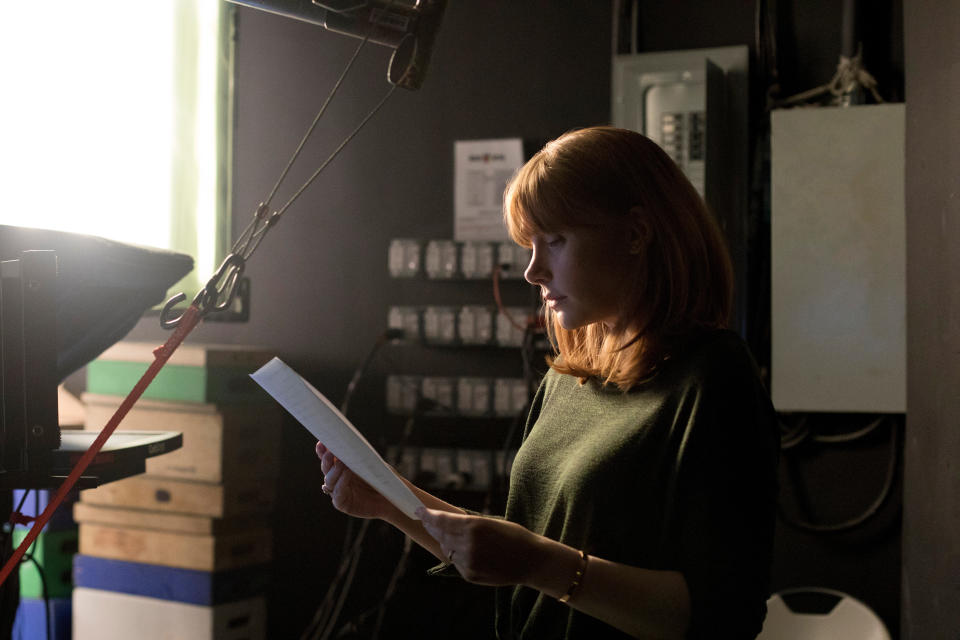
It’s nice to hear that you’re not alone in those cases — you hear that, and immediately think, “I know what that’s like.”
Completely. And as a mother, I think there are more opportunities for me to share my experience of mothering. That's not as typical as experience for fathers, and one of the things that came up again and again in my interviews was that fathering is a much more isolating experience. There’s not the same acknowledgement that there is for mothers in terms of being in the trenches where the responsibility falls on your shoulders. The world around men seems to operate like it's business as usual, and yet that's not what these fathers’ experience is at all. That's what I kept hearing again and again: There were circumstances where extraordinary parenting was required, and the world was not really making room for that with the men I was talking to.
We’re living in such complicated times — what would you say to parents who are trying to talk to their kids about the things they’re seeing in the news right now?
I think it's important to be very communicative in regards to what’s happening during this time, and some of the shifts that are occurring in our culture. This movie in particular is about fathering and normalizing men as caregivers. There are also a lot of conversations around the pandemic, and it being an unprecedented global event. And now we’re at an incredibly transformative moment with the civil rights movement that is Black Lives Matter. It’s a time to get engaged as parents; if there’s one takeaway I’ve learned from all these interviews it’s that parenting is modeling. What you do is what you are teaching, and the actions you take are going to be the path forward for our children in what they observe and participate in.
Your own father, Ron Howard, is well-known for being vocal about the causes he believes in. What sort of model did he provide for you growing up?
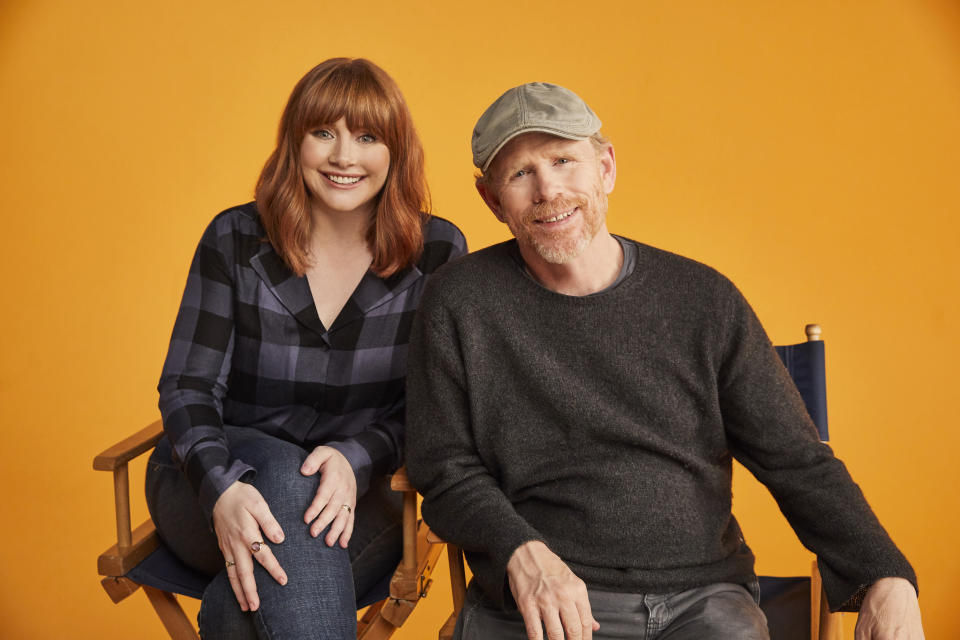
What he's always modeled for me is that it’s important to have difficult conversations, especially when you don't have the answers. He's just a guy who really believes in the golden rule, and if he sees anyone in his immediate sphere of influence not abiding by that, he says something. So we were all always working within our family on confronting our blind spots, and staying curious rather than being defensive. That’s been a great influence for me on a day-to-day basis. Performative activism sucks: It really is about engaging. It’s about how you’re showing up in this world as a human being, and responding to what’s occurring in the here and now.
He’s part of two shows — The Andy Griffith Show and Happy Days — that define a period in American culture for certain audiences. Has he talked to you about that disconnect between his screen persona and who he actually is?
I think the thing about The Andy Griffith Show that really resonated for my dad growing up was the relationship between Opie and Andy. It was this very tender, nurturing and active fathering that was a huge part of the story of the show. You would imagine that it was reflective of the morality of that time, and yet when I was really thinking about it I realized that in order for there to be that dynamic between father and son, Mom had to be dead! Andy Taylor was a widower, and I wonder had there had been a mother character, would that have allowed for the relationship between Opie and Andy to develop? Or would the assumption be that the conversations that Opie and Andy were having would have to happen between a son and a mother?
One of the things you see in the documentary is the story that my granddad [Rance Howard] tells about the early conversations he had with Andy Griffith. He told him: “If you make Opie a brat, that's going to impact their relationship.” That made them ask, “What are we saying about the relationship between a father and son here?” And those conversations are the best example of what can happen behind the scenes when people are deciding what kinds of stories can be told or shared.
You’re currently shooting the third Jurassic World movie, which is one of the first big studio blockbusters to resume filming after the coronavirus pandemic. How has the process been different so far?
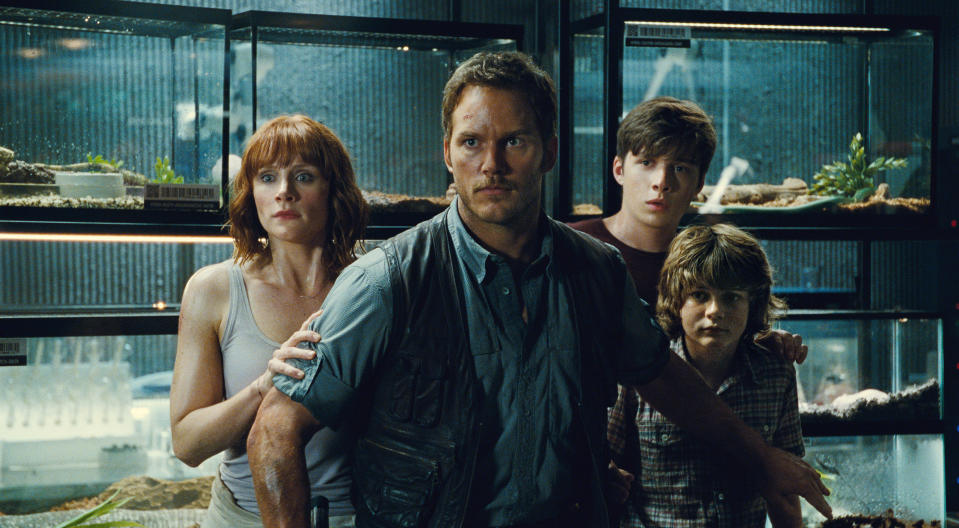
I'm currently in quarantine in the U.K., so I haven’t started filming yet. But what I can say is that I am incredibly impressed with all the safety guards in place. We're taking this one day at a time, but it's undeniable to me how safe I feel, and I'm really grateful for that. And honestly, I wouldn't be here unless I felt that that was going to be the case.
Has it impacted how you’re approaching your next directing projects?
Absolutely. There's another documentary that I'm hoping to film, and I was having a conversation yesterday about what the schedule could look like given what we know and what we don't know about the virus. I'm really into infrastructure, so I love investigating ways in which any industry can be reorganized so that it’s more equitable, more efficient and more effective. The benefit of thinking that way is that you really are thinking about the safety and the protection of everybody who is endeavoring to make a movie or a series. For the entertainment industry, it's a huge organizational challenge unlike anything that we’ve ever encountered before.
Everything is being looked at based on how each person who is participating can be taken care of. It’s a beautiful opportunity to learn about everyone’s job in our industry, and how big groups collaborate. We've always operated under a very clear hierarchy that's based on the military structure, and that's neither good nor bad, necessarily. But now we can explore other ways to collaborate that can be effective, and my hope is that once a vaccine or a really effective treatment plan is developed that we're all working in a more hygienic, mindful and equitable environment in our respective workplaces.
Before the quarantine, you directed another episode of The Mandalorian for the show’s second season. Is it as action-heavy as your Season 1 episode?
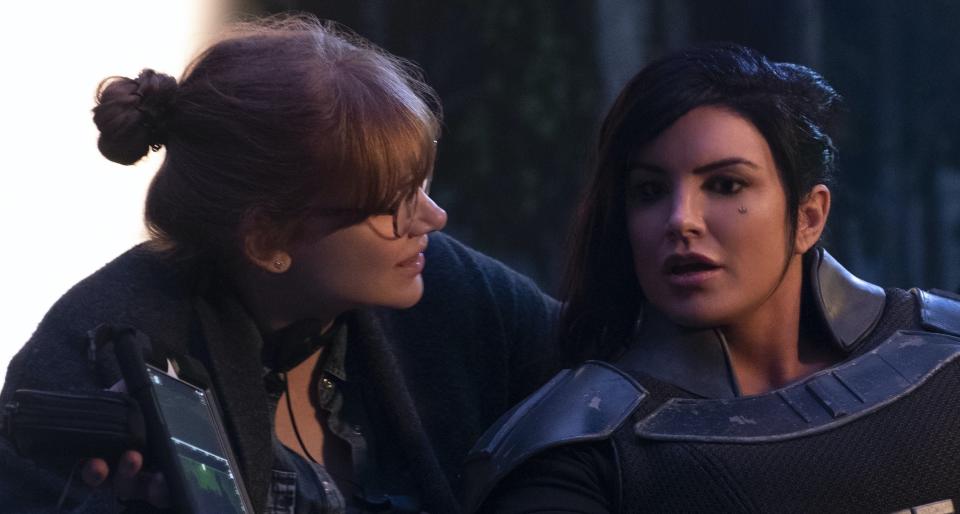
I can’t say anything, but yes, I’m loving the action! [Laughs] It's so weird, because the common denominator with the majority of my projects is they are these big action adventure films. I might not seem like the type, but I love it! It was the ultimate honor to be invited back for The Mandalorian, as you can imagine. Under Jon Favreau's guidance and leadership, it's one of the most exciting sets that I've ever been on, because of the use of emerging technology, because of the efficiency of the workflow and because of the creative possibilities. Jon and Dave Filoni are great collaborators themselves, and always bring others into their process and are so inclusive. It’s a joy, that's what it is.
Dads is currently streaming on Apple TV+.
Read more from Yahoo Entertainment:

